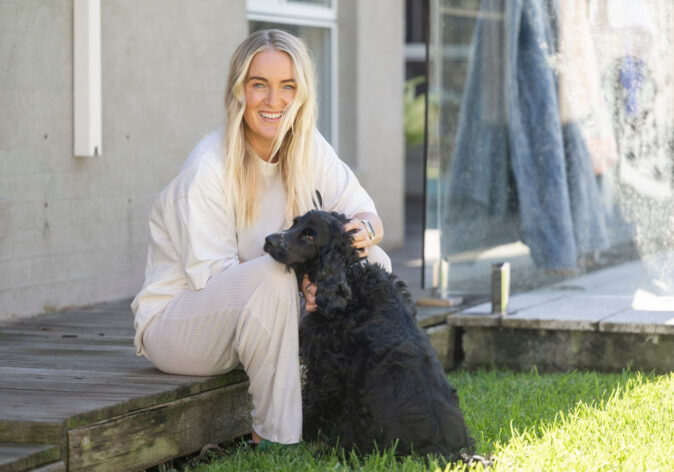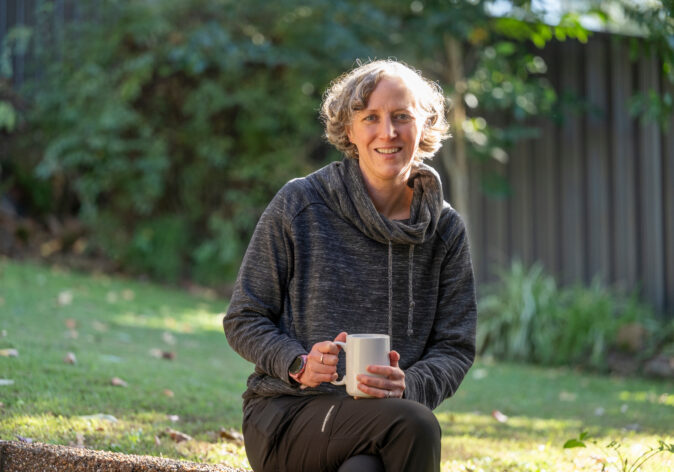What Happens When A Drug Is Very Effective On A Trial?
If you’re doing a trial and you see that it looks to be wildly successful, that’s fantastic – that’s what you’re of course trying to look for. But you then have a little bit of a dilemma. On the one hand, if it’s really really successful, you want to give that drug to all the women in the trial who are not getting it. On the other hand, you don’t want to react too soon and realise later that the early result you saw was a little bit of a flook. So there’s a balancing act there and the way we get around that is we set up these independent committees that look at the results without the clinical trial people knowing what the results are, so they’re quite independent, and if they see a major change and the way they test the results they say ‘this can’t be a flook, this is real’, then they tell us, the investigators, and we make that decision about whether to stop the trial.
Listen to the podcast
Associate Professor Wilcken discusses what happens when a drug is proven effective in a clinical trial.
The HERA Clinical Trial
For example, with the HERA trial, with Herceptin, that’s exactly what we did. We had a firm enough result, we knew it was real, so we contacted all the women in the trial who weren’t getting Herceptin and offered them the chance of having Herceptin. So the concept of stopping a trial and offering the people who aren’t getting the successful treatment the treatment that you’ve only just discovered is successful, and giving it to them, is obviously fabulous in terms of ‘we’ve just found a great new treatment that we can give you’. So there was a real sense of excitement when we had to do that in the HERA trial.
If you put your scientist’s hat on, of course, once you’ve given everyone the drug, you can’t actually learn any more than you’ve initially learnt, so it’s a funny mixed feelings reaction but overwhelmingly a positive one because we’ve suddenly made this leap forward and we can make it available to everyone and we were lucky in Australia that fairly quickly afterwards, the government stepped in and acknowledged how good the results were so it became freely available to everyone as it is to this day.
The HERA clinical trial was something the group was involved in from the start. It was a trial that was done predominantly in Europe, Australia and New Zealand, and it was part of an absolutely ground-breaking suite of trials – the others done in the United States.
This was the first trial that tested what we would call now a targeted treatment. This is for women with what we call HER2 positive breast cancer, a particular type of breast cancer that if left alone behaves very aggressively, and we were testing the new drug trastuzumab, known as Herceptin, and essentially we were asking the question ‘if you have that previously aggressive form of breast cancer and we give the standard chemotherapy, do we get better results if we add to that chemotherapy Herceptin’.
The answer was an absolutely overwhelming ‘yes’. It made a huge difference. It roughly halved the risk of the cancers coming back, it saved lives, and it very rapidly became part of standard therapy. Nowadays in Australia and New Zealand and all around the world, any woman with this HER2 positive type of breast cancer is treated with Herceptin, or trastuzumab, together with other treatments.
When we first looked at the results of HERA, they were collected together with the results of the other trials done around the world, particularly in the States, and they were all presented at one meeting in May in Chicago, I think in 2005? It was the most dramatic presentation that any of us had ever seen. It was absolutely remarkable because even with very very short follow-up it was clear that this was a total game-changer and further follow-up has only confirmed that.
Trying to put the HERA trial, testing Herceptin in context, I think that was clearly a major game-changer, and that changed having HER2 positive breast cancer from having a really bad thing to have, to not nearly so bad a thing to have.
Will we see such big changes with new treatments again? I think, not with HER2 positive breast cancer because we now have very good treatments for that, and we may get some extra new treatments and they may be slightly better or have slightly fewer side effects, but I think there’s still a chance that in some other types of breast cancer, particularly the hormone sensitive types of breast cancer, we may be on the verge of seeing another game-changer.
There’s a class of drugs with a complicated name, they’re called CDK46 inhibitors, they’re a tablet type of treatment, but they’re undergoing trials right now and they are looking like they may actually make a really big Herceptin-type difference, but we’ll just have to wait and see.
Support Us
Help us to change lives through breast cancer clinical trials research



